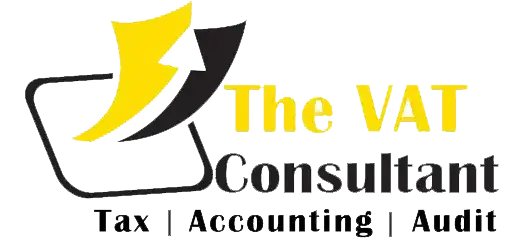Among all the Gulf Cooperation Council countries, the UAE is the largest exporter. The main products exported from the UAE are electronics, precious metals and gems. It is the 29th largest exporting economy in the world and the 20th largest importing country in the world. The main imported commodities of the UAE are gold, diamonds, jewelry and cars. Therefore, import and export is indispensable for UAE merchants. In this article, let us briefly understand UAE’s import and export and how to deal with VAT.
Export goods
When goods or services are provided from the UAE to people located outside the UAE, the supply is called an export. The location of the recipient can be the person’s business place or a fixed business place.
Are exports taxable?
Exports are considered taxable supplies. However, their tax rate is zero, which means a 0% tax on exports. In addition, the handling of exports is based on certain circumstances. These programs can be divided into the following categories:
a. Exports of commodities outside the GCC VAT-implementing countries
b. Export goods to unregistered consignees under GCC VAT implementation status
C. Export goods to registered recipients under GCC VAT implementation status
d. Export goods that need to be installed or assembled outside the state
Can the input tax be recovered for export?
Since exports are taxable supplies, input taxes can be levied on supplies used for exports. If the exporter also provides domestic supplies, the recovered input tax can be used to reduce its tax liability. If the exporter is only engaged in export trade, the exporter can refund the tax on the input.
Do I need to keep export records?
Yes, from the end of the year covered by the invoice, export records must be kept for at least 5 years.
For example: For export invoices issued on January 5, ’18 should be retained until December 31, 23.
Imported goods
When goods or services are received from a country other than the UAE, the supply is called an import.
Are imports taxed?
Imported goods are subject to VAT. When a person registered under VAT in the UAE imports goods or services, the importer must pay VAT on the imported products in a reverse charge. This is in addition to tariffs imposed on imported products. The import scheme can be divided into the following types:
a. Imported by VAT registered person
b. Imported by people who have not registered for VAT
C. Transshipment of cargo to other Gulf Cooperation Council countries through the UAE
d. Goods imported into the UAE and exported to other countries
What is reverse charging?
Generally, at the time of supply, the supplier of the goods or services is responsible for collecting taxes from the Federal Tax Administration (FTA). This is called forward cost. According to the reverse charge, the recipient of the supply is obliged to pay the supply tax to the Federal Revenue Service. As far as imports are concerned, since the supplier is not in the UAE and therefore not registered in the UAE, importers who should be registered in the UAE under the value-added tax shall bear import taxes.
What is the VAT rate applicable to imports?
When importing, a 5% value-added tax rate applies. The only exception is the import of precious metals, where the applicable VAT rate is 0%. The VAT rate applicable to imports should be consistent with the VAT rate for domestic supplies to ensure that imported products are taxed the same as domestic supplies.
Can input tax be refunded on imports?
Yes, the import tax paid by the recipient of the supply source is eligible for input tax recovery.
Do I need to keep import records?
Yes, import records must be kept for at least 5 years from the end of the year covered by the invoice.
Therefore, import and export is an indispensable activity for UAE businessmen. Knowledge of compliance under VAT is essential for these companies to accurately meet compliance requirements and take advantage of the benefits of VAT.
EXPORT OF GOODS UNDER VAT IN UAE
In the previous article, we discussed about import and export under the UAE VAT. Exports can be goods or services. In this article, let us understand the export of goods and how to deal with them under UAE VAT.
Export goods under UAE VAT
There are two types of goods export:
1. Export goods to non-GCC VAT-implementing countries
2. Export goods to countries that implement value-added tax in the Gulf Cooperation Council
It is important to determine whether the destination of the exported goods is the country where the GCC VAT is implemented. According to this classification, VAT will be levied accordingly.
Export goods to non-GCC VAT-implementing countries
Non-GCC VAT-implementing countries can be countries within the GCC territory that have not yet implemented VAT, or countries outside the GCC territory. In the Gulf Cooperation Council region, currently only the UAE and the Kingdom of Saudi Arabia have implemented VAT. Therefore, this covers the export of goods from the UAE to any Gulf Cooperation Council country except the Gulf countries.
When goods are exported from the UAE to non-GCC VAT-implementing countries, the export can be of two types:
1. Direct export
2. Indirect export
Direct export refers to the export in which the supplier is responsible for arranging the transportation of goods or appointing an agent to export on its behalf. Indirect export refers to the exporter, and the receiver is responsible for arranging to collect the goods from the supplier in the UAE, and exporting it himself or having appointed an agent to do so on his behalf.
As long as certain conditions are met, exports to non-GCC VAT-implementing countries, whether direct or indirect, will be zeroed.
To learn more about exporting to non-GCC VAT implementing countries, please read our article on Exporting to Non-GCC VAT Implementing Countries.
Export goods to countries that implement value-added tax in the Gulf Cooperation Council
Currently, the countries that have implemented value-added tax in the Gulf Cooperation Council are the UAE and the Kingdom of Saudi Arabia. This includes the Gulf Cooperation Council member states that implement value-added tax.
In order to determine the applicability of value-added tax to the export of goods to the country where the value-added tax is implemented, two questions need to be answered:
1. Is the payee registered under VAT in the destination country?
2. If the recipient is not registered, is the export value of the supplier to the destination country lower than the mandatory registration threshold of the destination country? Here, the export value of the supplier to the destination country in the past 11 months should be checked.
Based on these issues, there may be three types of exports to the Gulf Cooperation Council VAT implementation countries
Applicability of scheme value-added tax
Export to recipients who are registered as zero value-added tax under VAT in the destination country/region and have zero rate under UAE VAT
Exports to recipients who are not registered for VAT in the destination country, and the supplier’s export value to the destination country is below the mandatory registration threshold in the taxable supply of the destination country under the UAE VAT. Suppliers must charge 5% VAT when exporting
Exporting to recipients who have not registered for VAT in the destination country, the supplier’s export value to the destination country exceeds the mandatory registration threshold in the destination country, and the supplier must register for VAT in the destination country. The supply will be treated as the domestic supply of the destination country. Suppliers must charge VAT at the applicable tax rate in the destination country.
To understand the applicability of VAT in each case, you can refer to our article on exporting goods to GCC VAT implementing countries.
Therefore, the value-added tax treatment of merchandise exports depends on the export destination, regardless of whether it is a GCC VAT-implementing country. In order to apply value-added tax correctly, taxpayers must determine the type of export.
EXPORTS OF GOODS TO GCC VAT IMPLEMENTING STATES
In the previous article, we learned about the value-added tax treatment of goods exported to non-GCC VAT-implementing countries. Now let us understand how to deal with goods exported to GCC VAT-implementing countries.
GCC VAT Implementing Countries
Currently, the countries that have implemented value-added tax in the Gulf Cooperation Council are the UAE and KSA (Saudi Arabia). All Gulf Cooperation Council member states that implement value-added tax are included in this category.
Export goods to countries that implement value-added tax in the Gulf Cooperation Council
The treatment of goods exported to GCC VAT-implementing countries is different from that of goods exported to non-GCC VAT-implementing countries. Although the VAT rate for VAT exports to the UAE to non-GCC VAT-implementing countries is zero, but to meet the required conditions, the VAT on goods exported to GCC VAT-implementing countries depends on two factors. these are:
Is the recipient registered as VAT in the destination country/region?
b. If the consignee is not registered, is the supplier’s export value to the destination country lower than the mandatory registration threshold for the destination country?
Let us understand this with the help of the following diagram:
Let us understand this through an example.
Example: Noor Electronics LLC, a registered distributor in Abu Dhabi, provides 50 mobile phones to Abdul Electronics LLC, a registered distributor in Saudi Arabia (Kaudi) (Saudi Arabia).
Here, Abdul Electronics LLC is a registered distributor of KSA.
Therefore, for Noor Electronics LLC, this is a zero rated power supply under UAE VAT. In the KSA, Abdul Electronics (Abdul Electronics) must charge a reverse charge for the mobile phone import tax.
Example: Noor Electronics LLC provided 50 mobile phones to KSA’s Ali Electronics. Ali Electronics is not registered in the KSA under VAT.
Here, Ali Electronics is not registered under VAT. Therefore, it is necessary to check the export value of Noor Electronics LLC to KSA during the year. Noor Electronics LLC’s export value is 250,000 Saudi Arabian riyals, which is below the mandatory registration threshold of 375,000 Saudi Arabian rials in the KSA.
Therefore, Noor Electronics LLC must levy a 5% value-added tax on mobile phone exports.
Example: Noor Electronics LLC provides 50 mobile phones to Ahmed Enterprises, a KSA company. Ahmed Enterprises has not registered for VAT in KSA.
Since the consignee Ahmed Enterprises has not registered for VAT in KSA, it is necessary to check the export value of Noor Electronics LLC to KSA during the year. In this year, Noor Electronics LLC’s export value was 380,000 Saudi Arabian riyals, which exceeded the mandatory registration threshold of 375,000 Saudi Arabian rials in the KSA. This requires Noor Electronics LLC to register for VAT in KSA.
Therefore, Noor Electronics LLC’s mobile phone supply will be treated as KSA’s domestic supply, and Noor Electronics LLC must charge it a 5% value-added tax based on KSA’s value-added tax.
In short, the value-added tax levied on goods exported to the GCC VAT-implementing countries depends on the above factors. Exporters in the UAE need to understand these rules and levy value-added tax based on the export situation.
UAE EXPORTS OF GOODS FROM UAE TO NON-GCC VAT IMPLEMENTING STATES
According to the value-added tax, the way the export of goods is handled, that is, the goods are shipped from the UAE to people outside the UAE, depends on whether the consignee is located in the GCC VAT-implementing country. In this article, let us understand the treatment of goods exported from the UAE to non-GCC VAT-implementing countries.
Non-GCC VAT Implementing Countries
Non-GCC VAT-implementing countries can be countries within the GCC territory that have not yet implemented VAT, or countries outside the GCC territory. In the Gulf Cooperation Council region, currently only the UAE and the Kingdom of Saudi Arabia have implemented VAT. Therefore, this article will discuss the export of goods from the UAE to any Gulf Cooperation Council country except the Gulf countries, as well as Saudi Arabia and any country outside the Gulf Cooperation Council region.
Type of export
When goods are exported from the UAE to non-GCC VAT-implementing countries, the export can be of two types:
- Direct export
- Indirect export
Direct export
Direct export refers to the export in which the supplier is responsible for arranging the transportation of goods or appointing an agent to export on its behalf.
Indirect export
Indirect export refers to the exporter, and the receiver is responsible for arranging to collect the goods from the supplier in the UAE and export it by himself, or has appointed an agent to do the export.
Directly export to non-GCC VAT implementing countries
If the following conditions are met, direct exports to non-GCC VAT-implementing countries will be zero-rated supply:
The goods should be exported in kind within 90 days from the date of supply or placed in customs shutdown status.
The exporter should retain official and commercial evidence of the suspension of the export or customs.
Indirectly exported to non-GCC VAT implementing countries
If the following conditions are met, indirect exports to non-GCC VAT-implementing countries will be zero-rated supply:
According to the agreement reached between the supplier and the recipient on or before the date of supply, the goods will be exported in kind or placed under the tariff suspension system within 90 days from the date of supply.
The consignee shall obtain official and commercial evidence of the suspension of the export or customs and shall provide a copy to the supplier.
Unless within the necessary scope to prepare for export or customs suspension, the goods shall not be used or changed during the time between supply and export or customs suspension.
The cargo should not leave the UAE owned by the passengers or crew of the aircraft or ship.
The payee should not have a business office or a fixed business office in the UAE, must not reside in the UAE, and should not have a tax registration number in the UAE.
UAE EXPORTS OF SERVICES TO OUTSIDE THE GCC TERRITORY
In the UAE’s VAT, service is defined as any goods other than those that can be provided. When a service is provided to a person whose business place or a fixed place of business is outside the UAE, it becomes the output of the service. The Gulf Cooperation Council (Gulf Cooperation Council) is composed of the UAE, Saudi Arabia, Bahrain, Kuwait, Oman and Qatar. In this article, let us understand how to export services from the UAE to countries outside the GCC territory.
Export of services outside the territory of the Gulf Cooperation Council
In the United Arab Emirates, in accordance with the value-added tax regulations, the export tax on services provided to countries outside the Gulf Cooperation Council (GCC) is zero. This means that no taxes are levied on exports, and suppliers can claim input tax credits on inputs used to provide export services.
However, the export of services from the UAE to countries/regions outside the GCC territory must meet certain conditions in order to become a zero-rated supply. these are:
1. The recipient of the service should not live in a GCC country, and should be outside the UAE when performing the service
This means that the recipient of the service should not have a business office or a fixed business office in any GCC state, and should be located outside the UAE when performing the service. Even if the recipient has been in the UAE for less than one month, or their presence in the UAE is not in effective contact with the supply, the recipient is eligible to be outside the UAE when performing services.
2. The service must not be directly connected with real estate or movable property
Services exported from the UAE to outside the territory of the Gulf Cooperation Council should not be provided directly in contact with the following:
- Real estate located in the UAE or any improvement to UAE real estate.
- Removable personal property located in the UAE at the time the service is provided.
Therefore, similar to the handling of goods exported from the UAE to areas outside the GCC territory, the export of services to areas outside the GCC territory has a zero tax rate. However, in order for service exports to meet the zero-rated supply conditions, the above two conditions must be met. Taxpayers should pay attention to these requirements to ensure that their service exports have a zero rate under the UAE’s VAT.


























